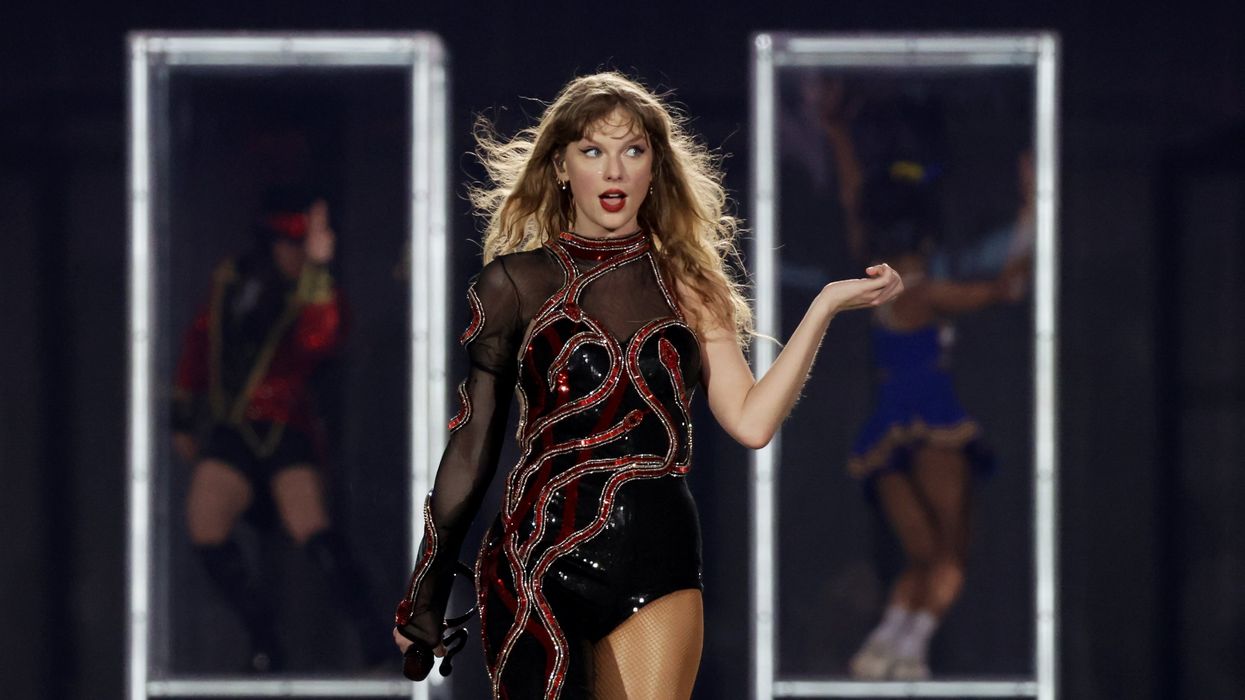Nevins is co-publisher of The Fulcrum and co-founder and board chairman of the Bridge Alliance Education Fund.
On Feb. 1, I posed a question to readers of The Fulcrum: “ Could Taylor Swift be the biggest election influencer of them all? ”
I pointed out that the youth vote will be a critical factor in determining the winner of the 2024 presidential election. Yet paradoxically many believe that, due to the advanced age of the two likely nominees, young voters simply won’t show up to vote on Election Day.
The response to the writing was considerable. Some readers told me they believe a pop star should not be involved in politics and others suggested that I was exaggerating the impact Swift would have if she were to endorse Biden.
With those reactions in mind, I did some research and found that Swift's fan base is increasing in the swing states, where Google searches for the pop star increased by 216 percent in the past year, including Michigan (228 percent). The two other states with the biggest increases were solidly Republican Florida (219 percent) and Iowa (273 percent).
This data reveals how Swift and her growing fanbase could influence the U.S. election, with 225 electoral votes up for grabs in the swing states. Narrowing things down, four of the five so-called tossup states saw higher than average searches for Swift, especially in Wisconsin (282 percent increase).
So how could this affect the election?
There has been speculation that the Democratic Party might use Swift to gain votes, but to date there is no indication that she is considering entering the fray. Even so, Donald Trump supporters have pledged a “holy war” against Swift, whose high-profile romance with Kansas City Chiefs star tight end Travis Kelce has brought her to the attention of the NFL fanbase.
In today's world of social media, megastardom has taken on a new yet not fully realized power. In her book “ Politics for the Love of Fandom,” author Ashley Hinck examines the phenomenon she terms "fan-based citizenship" in today's social media world.
She describes fan activism as "public engagement that emerges from a commitment to a fan-objector, in other words, a civic action that stems from participants' fandom experience and fan values, rather than from traditional religious or social institutions such as a church or political party.”
This powerful new fandom is something to be considered in the 2024 election. As Hinck writes, "To ignore fan-based citizenship would be to ignore a central part of contemporary public culture" and the realization that "online communities are increasingly serving as a source of community, public values, and ultimately, citizenship performances."
Before the 2020 election Swift lashed out at Trump for his late-night tweet threatening violence against protesters in Minnesota, saying the president had been “stoking the fires of white supremacy and racism [his] entire presidency.”
That tweet received nearly 2,000,000 likes.
Fast forward to Super Tuesday 2024. On March 5, we got a glimpse of the potential power of a Taylor Swift endorsement as she used an Instagram story to encourage her more than 282 million followers to vote.
“Today, March 5, is the Presidential primary in Tennessee and 16 other states and territories,” Swift, who has a home in Tennessee, wrote.
“I wanted to remind you guys to vote the people who most represent YOU into power. If you haven’t already, make a plan to vote today,” Swift continued. “Whether you’re in Tennessee or somewhere else in the US, check your polling places and times at vote.org.”
Whether this is a precursor of more involvement in the coming months remains to be seen.




















Trump & Hegseth gave Mark Kelly a huge 2028 gift